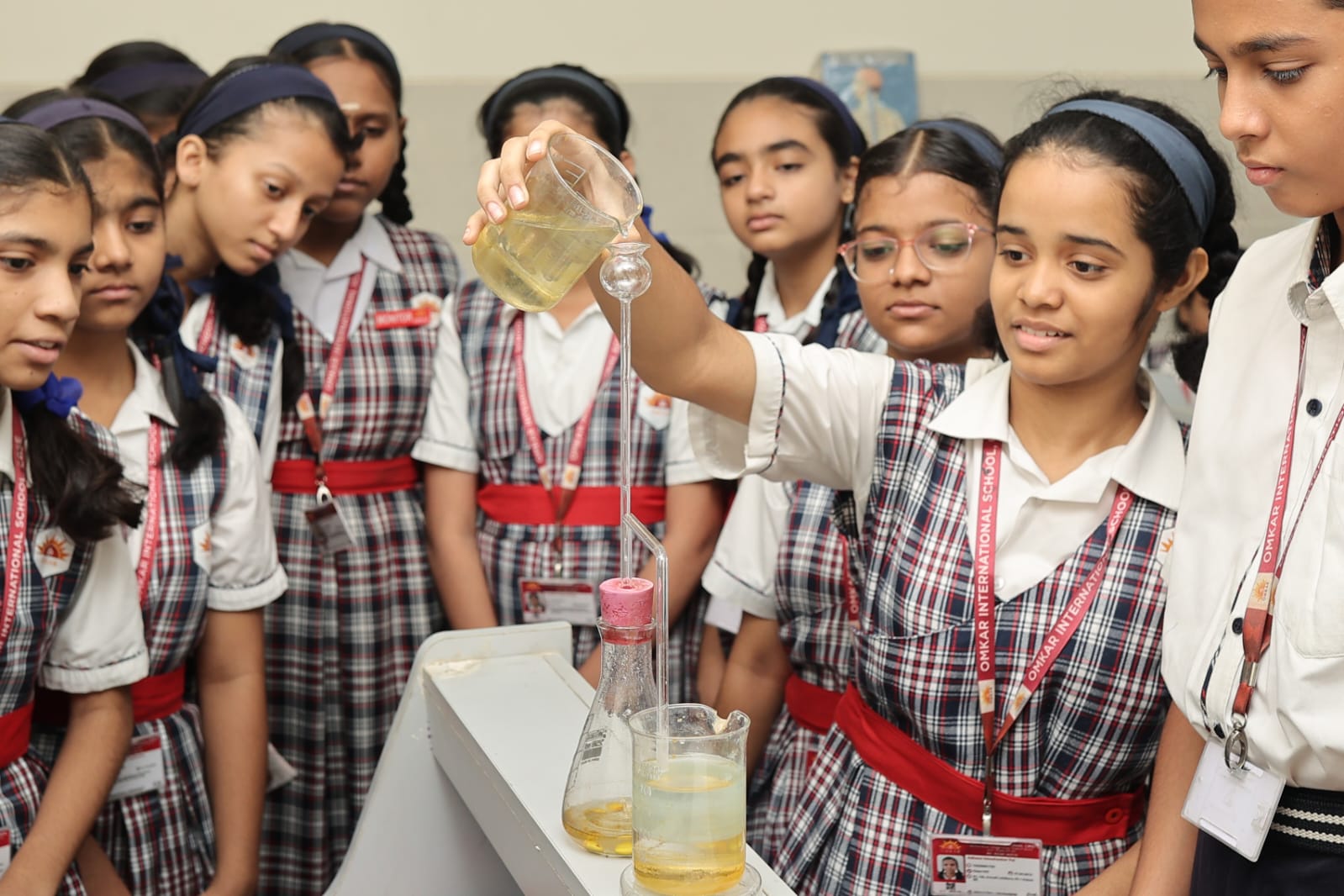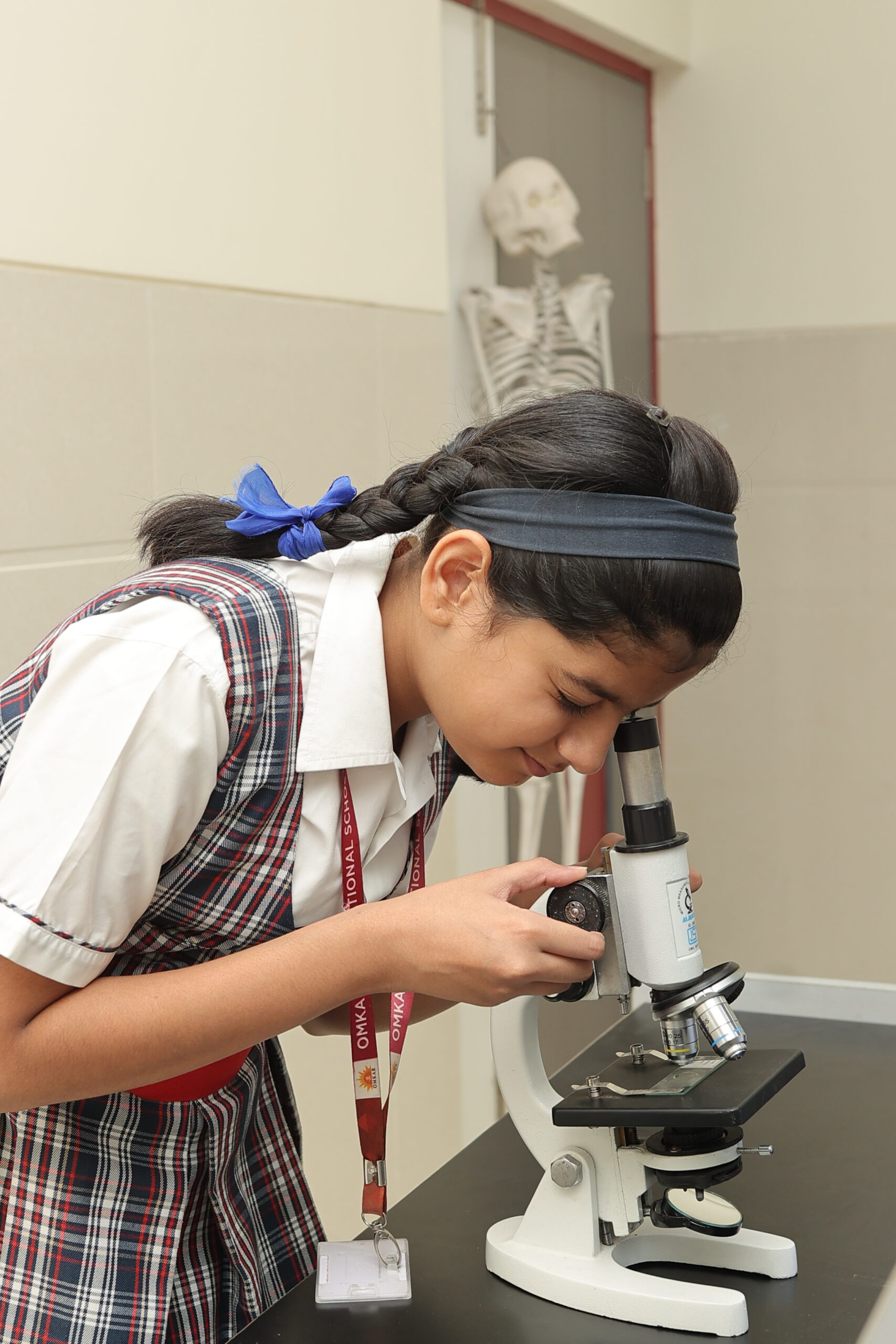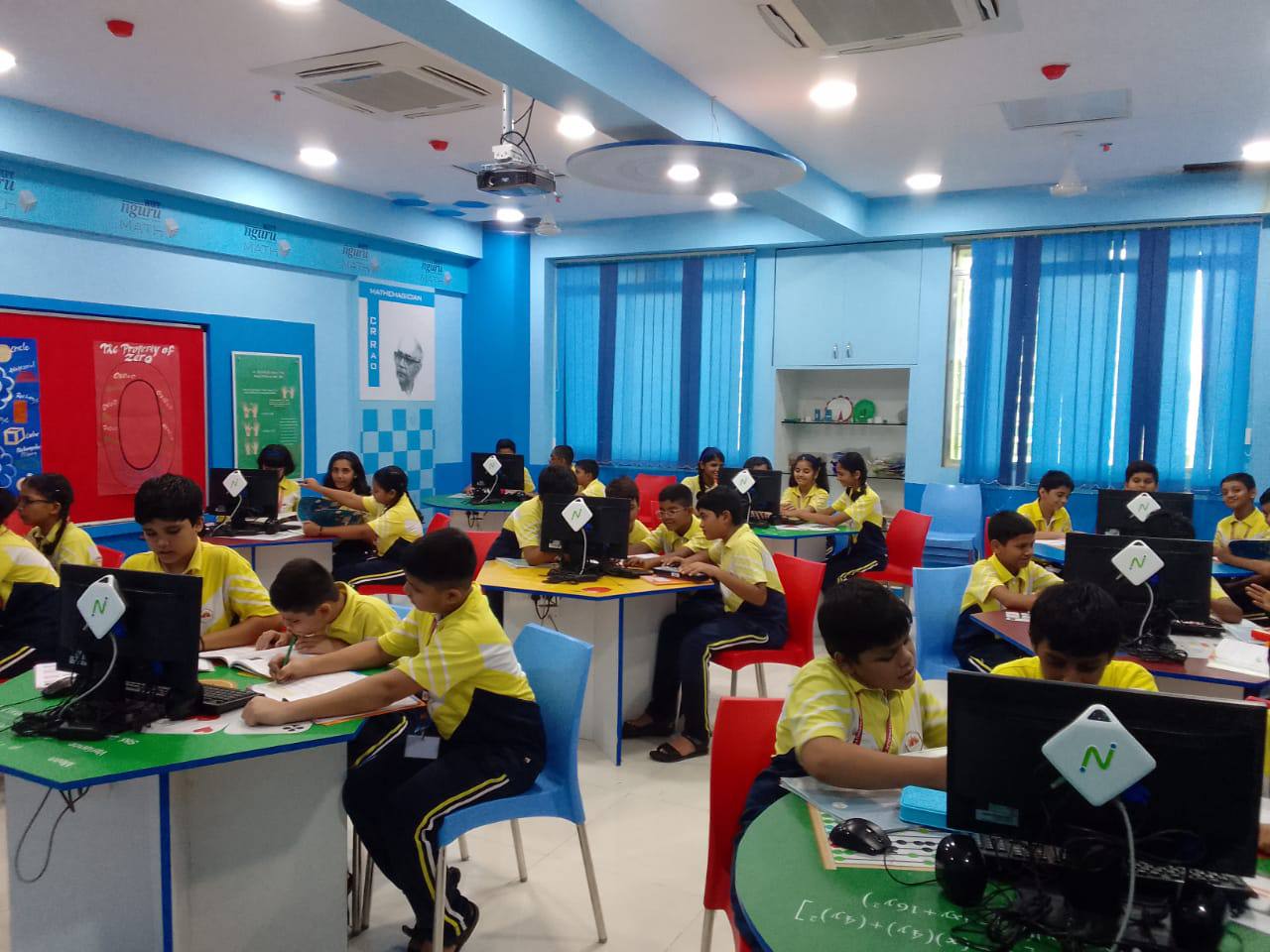Well Furnished Labs

Physics
Engaging with physical experiments help students understand abstract concepts by seeing them in action.
Labs allow students to apply theoretical concepts learned in the classroom to real-world situations, reinforcing their understanding and providing a practical context for abstract ideas.
Labs encourage students to ask questions, make observations, and form hypotheses. This promotes a scientific mindset and cultivates curiosity about the natural world.

Chemistry
Lab experiments demonstrate how chemistry concepts are applied in real-world situations, helping students make connections between theory and practical applications.
Students learn how to collect, analyse and interpret data from experiments, honing their skills in data analysis—a crucial aspect of scientific research.
Biology
Biology labs introduce students to proper safety protocols and procedures, emphasizing the importance of safe practices when working with chemicals, equipment, and biological specimen.
Labs often involve collaborative activities, promoting teamwork and communication skills among students. Working together on experiments fosters a sense of camaraderie and shared learning experiences.


Math
Math lab provides a hands-on learning experience, allowing students to manipulate physical objects and models to gain a concrete understanding of mathematical concepts.
Math labs complement classroom instruction by reinforcing theoretical concepts through practical, real-world applications and activities.
Computer
Computer labs are essential for teaching programming and coding skills, preparing students for careers in technology and fostering problem-solving and logical thinking abilities.
Computer labs allow the use of educational software and simulations, providing interactive and engaging learning experiences that enhance understanding of complex concepts. Familiarity with computer lab prepares students for the technology-driven workplace, where digital skills are increasingly essential in various professions.

